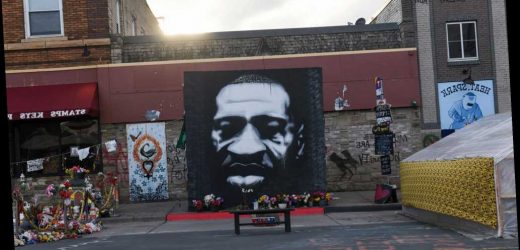More On:
Derek Chauvin
This never-before-seen George Floyd video prompted 911 dispatcher to call her boss
George Floyd may have taken Percocet during fatal arrest: defense
Prosecutor in George Floyd trial: ‘This was not an instant death’
George Floyd’s family expect lawyers to ‘assassinate his character’
We exist in a period of ideological purity tests and zero tolerance for what F. Scott Fitzgerald described as “the ability to hold two opposed ideas in mind at the same time and still retain the ability to function.”
For that reason, it is necessary to balance the revulsion for disgraced former Minneapolis police officer Derek Chauvin’s mistreatment of George Floyd — an appalling case of police brutality — with recognition that prosecutors may have made a critical error by overcharging the case.
Let us stipulate that the conduct of Chauvin — an armed instrument of the state — was repugnant and yes, criminal. Casually kneeling on a handcuffed, prone suspect’s neck for eight minutes and 46 seconds does not meet the definition of proportional police use of force. No twisted, distorted interpretation of “objective reasonableness” — codified as the means to judge law enforcement actions by the Supreme Court in Graham v. Connor — changes that.
Law enforcement professionals won’t defend Chauvin’s misconduct. There is no defense for it. However, criminal cases are often messy, complicated, and complex.
To wit, Hennepin County Medical Examiner, Dr. Andrew Baker, concluded that the cause of death was homicide. However, the preliminary report suggested that underlying conditions may have contributed to Floyd’s death. The attendant toxicological report concluded that the death was attributable to the “combined effects of Mr. Floyd’s being restrained by police, underlying health conditions and any potential intoxicants in his system.” Traces of fentanyl, methamphetamine and an underlying heart condition surely lends to the messy, complicated, and complex particulars of this criminal case.
In court — not the public opinion version — there will be an introduction of physical and testimonial evidence. And this is where prosecutors have made a miscalculation. Last May, the Hennepin County attorney charged third-degree murder and second-degree manslaughter. Public outcry led Minnesota Attorney General Keith Ellison to add a charge of second-degree murder. After a series of appellate challenges, the charges remain intact.
The prosecutorial burden of proof in a murder case is an impossibly high threshold when saddled with the autopsy report’s listed contributory factors in Floyd’s death.
Proving an applicable second-degree murder charge in Minnesota requires an intent to cause death; impossible to prove in this case. The definition of third-degree murder is murkier and plagued with conflicting interpretations.
However, a person may be charged with second-degree manslaughter if they “knowingly or consciously take a risk (like kneeling on someone’s neck) that results in the death of a person.” Chauvin’s conduct was manslaughter; culpable negligence. For those viewing as injustice anything less than a murder conviction, forewarned is forearmed.
View Slideshow
Source: Read Full Article






